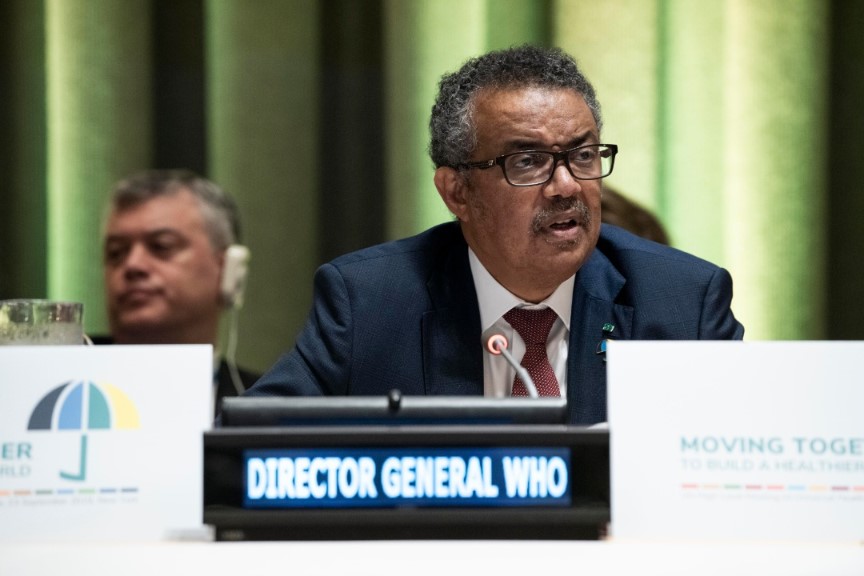KUALA LUMPUR, Sept 24 – World leaders yesterday adopted a United Nations declaration to achieve universal health coverage by 2030, touted as the most comprehensive agreement ever reached on global health.
The political declaration approved at a high-level meeting on universal health coverage during the UN General Assembly’s 74th session in New York City, the United States, saw UN member states pledging to invest in four major areas around primary health care.
The areas include mechanisms to ensure no one suffers financial hardship because they have had to pay for health care out of their own pockets; implementing high-impact health interventions to combat diseases and protect women’s and children’s health; as well as strengthening health workforce and infrastructure; and reinforcing governance capacity.
The nations are expected to update their progress to the UN General Assembly in 2023.
“Ultimately, health is a political choice,” World Health Organization (WHO) director-general Dr Tedros Adhanom Ghebreyesus emphasised, adding that the political declaration approved today was a powerful statement.
“Our vision is not health for some, health for most, but health for all.”
UN secretary general António Guterres said in his opening remarks at the high-level meeting that the approved declaration on universal health coverage will drive progress over the next decade on communicable diseases including HIV/AIDS, tuberculosis and malaria, while addressing non communicable disease and antimicrobial resistance through robust and resilient primary health care systems.
The UN stands ready to assist Member States in these endeavours, but “making universal health coverage a reality by 2030 depends first and foremost on bold national leadership,” he stressed.
World Bank Group president David R Malpass suggested that nations increase investments in affordable primary health care, as resources are needed to detect and treat conditions early; as well as engage the private sector to develop the initiative.
Today, WHO and 11 other multilateral organizations are expected to introduce their Global Action Plan for health and wellbeing for all, according to a WHO statement.
“The plan will ensure the 12 partners provide more streamlined support to countries to help deliver universal health coverage and achieve the health-related SDG (sustainable development goals) targets,” said WHO.
WHO said Sunday that countries must increase spending on primary health care by at least 1 per cent of their gross domestic product (GDP) to close glaring coverage gaps and meet health targets agreed in 2015.
The world must double health coverage between now and 2030, according to WHO, or leave up to five billion people unable to access health care in 2030.
Malaysia told the World Health Assembly, WHO’s decision-making body, last May in Geneva that it aimed to improve primary health care through programmes like the Peka B40 health screening scheme for low-income Malaysians.








